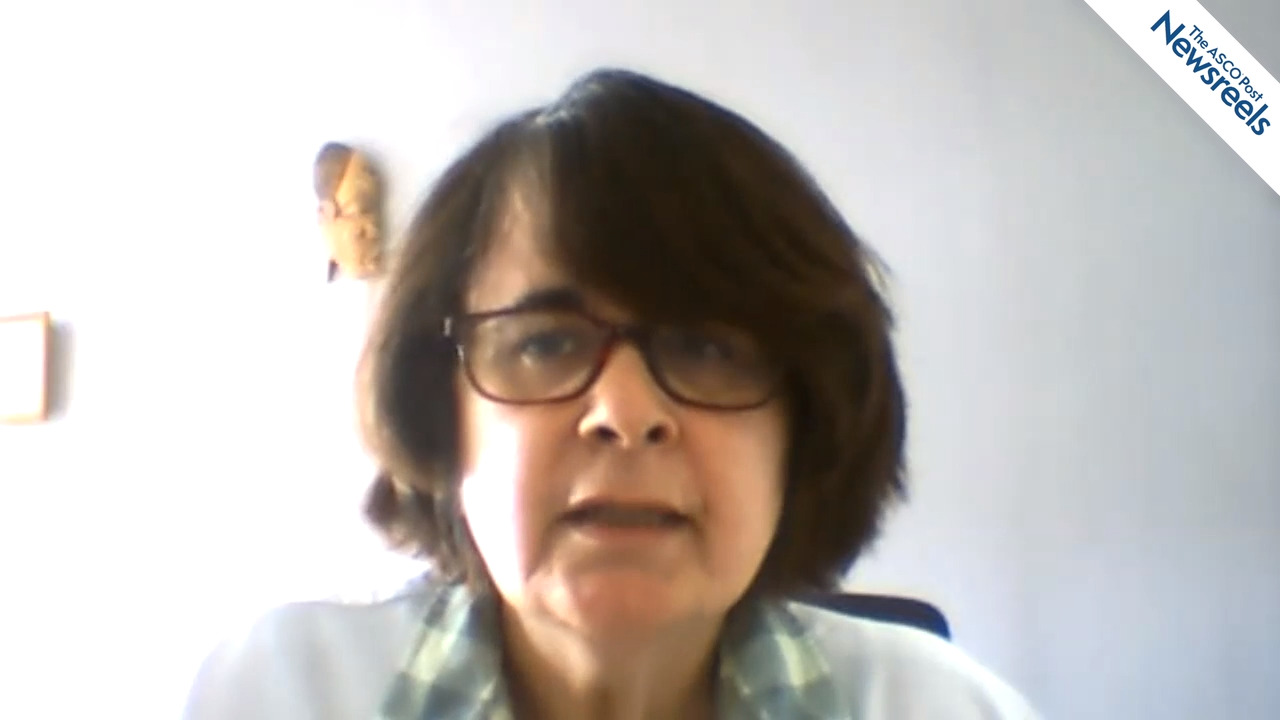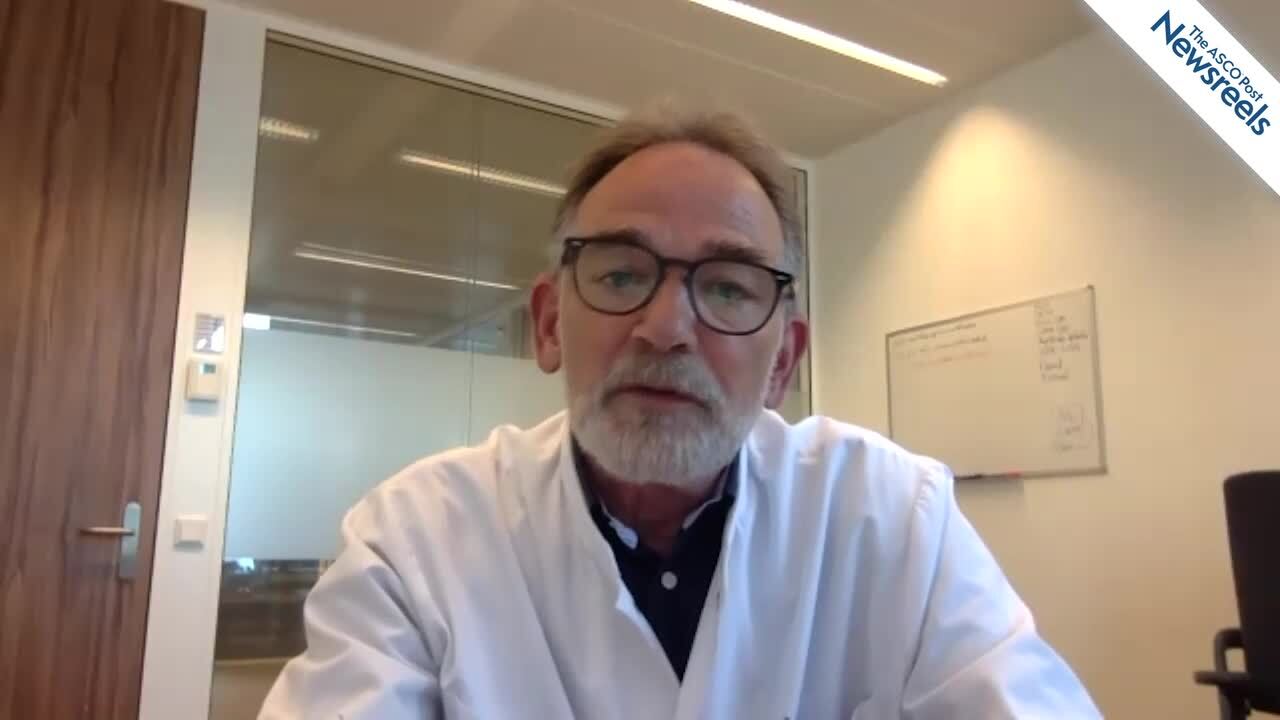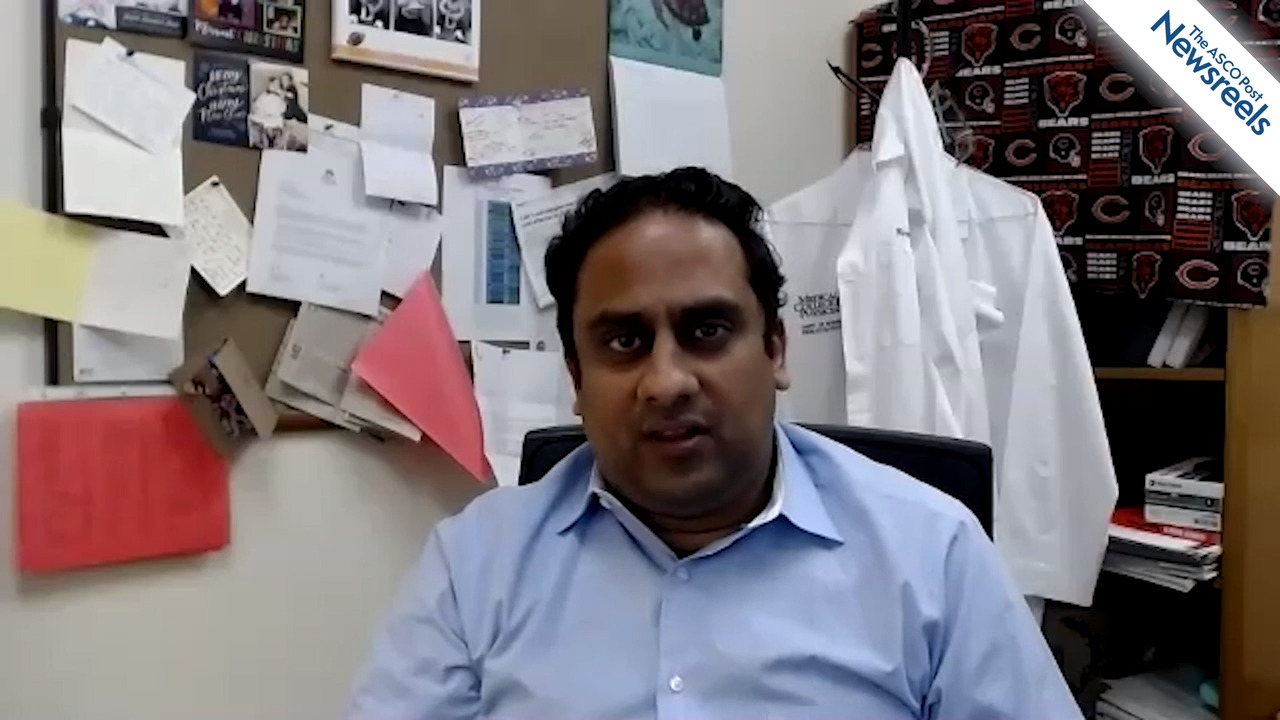Farhad Ravandi-Kashani, MD, on Acute Myeloid Leukemia: AMG 330 in Patients With Relapsed or Refractory Disease
ASCO20 Virtual Scientific Program
Farhad Ravandi-Kashani, MD, of The University of Texas MD Anderson Cancer Center, discusses updates from a phase I dose-escalation study of AMG 330, a bispecific T-cell engager molecule. It showed early evidence of an acceptable safety profile, drug tolerability, and antileukemic activity, supporting further dose escalation in patients with acute myeloid leukemia (Abstract 7508).
The ASCO Post Staff
Patricia Pautier, MD, of Institut Gustave Roussy, discusses final results of the phase II LMS-02 study, which showed the combination of doxorubicin and trabectedin to be an effective first-line therapy for patients with leiomyosarcoma, with an acceptable safety profile (Abstract 11506).
The ASCO Post Staff
Egbert F. Smit, MD, PhD, of the Netherlands Cancer Institute, discusses interim results from the DESTINY-Lung01 trial of fam-trastuzumab deruxtecan in patients with HER2-mutated metastatic non–small cell lung cancer. The data show clinical activity with high overall response rates and durable responses (Abstract 9504).
The ASCO Post Staff
Howard A. Burris III, MD, FACP, FASCO, talks about some of the reports of research developments he is looking forward to and how future conferences could incorporate virtual presentations.
The ASCO Post Staff
Nirav Niranjan Shah, MD, of the Medical College of Wisconsin, explores whether autologous transplantation, in patients with relapsed diffuse large B-cell lymphoma who achieve only a PET/CT-positive partial remission, is appropriate in the era of CAR T-cell therapy (Abstract 8000).
The ASCO Post Staff
Christopher Sweeney, MBBS, of Dana-Farber Cancer Institute, talks with Thomas Powles, MD, PhD, of Queen Mary University of London, about the first study to demonstrate a survival advantage with avelumab for metastatic urothelial cancer. In the trial, avelumab improved median overall survival by 21.4 months compared with 14.3 months with best supportive care (Abstract LBA1).





